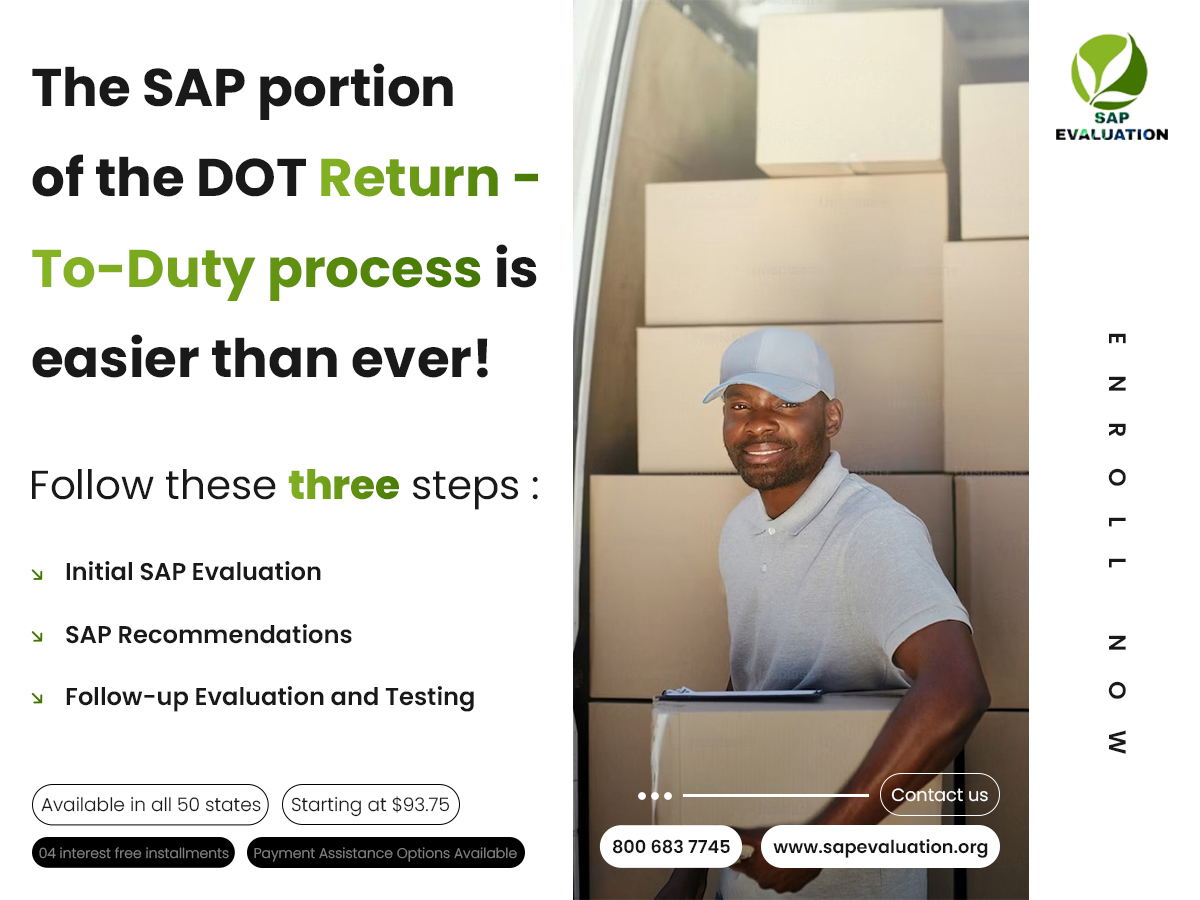
Substance abuse professional is a pivotal process in the realm of addiction recovery and rehabilitation. It encompasses a comprehensive assessment of an individual’s substance use patterns, history, and related behaviors. Professionals examine factors like substance use, medical history, and psychological assessments to gauge addiction’s impact. This holistic evaluation guides personalized treatment plans for sobriety and wellness.
Importance of substance abuse evaluation
Substance abuse evaluation is crucial in addiction treatment, offering insight into substance use and related issues. It helps identify addiction severity, co-occurring mental health disorders, and readiness for change. This assessment informs a tailored treatment plan for the individual’s unique needs and challenges.
Moreover, SAP Evaluation helps in determining the appropriate level of care required for effective treatment. It assesses physical, psychological, and social well-being to recommend the right treatment setting: outpatient, inpatient, or intensive outpatient programs. A thorough evaluation ensures a more successful recovery by addressing underlying issues.
In addition, substance abuse evaluation helps in the monitoring and tracking of progress throughout the treatment journey. By establishing a baseline through the initial assessment, professionals can measure and evaluate the individual’s progress over time. This allows for adjustments in the treatment plan as needed, ensuring that the individual receives the most effective care and support on their path to recovery.
Components of a SAP Evaluation
A comprehensive SAP Evaluation consists of various components that collectively provide a comprehensive understanding of the individual’s substance use and related issues. These components include screening for substance abuse, diagnostic criteria and classification systems, psychological testing, and medical evaluation and laboratory tests.
Screening for substance abuse
The first step in a SAP Evaluation is typically a screening process. This involves the use of standardized screening tools to assess the individual’s substance use and determine the likelihood of a substance use disorder. Screening tools such as the Substance Abuse Subtle Screening Inventory (SASSI) or the Alcohol Use Disorders Identification Test (AUDIT) help professionals identify potential issues and guide further assessment.
During the screening process, professionals may inquire about the individual’s substance use history, including the types of substances used, frequency of use, and any associated consequences. This initial screening helps determine the need for a more comprehensive evaluation and guides the selection of appropriate assessment tools.
Diagnostic criteria and classification systems
Once the screening process identifies the need for further evaluation, professionals rely on diagnostic criteria and classification systems to assess the severity of the individual’s substance use disorder. The Diagnostic and Statistical Manual of Mental Disorders (DSM-5) is commonly used to diagnose substance use disorders. It provides specific criteria and guidelines for identifying the presence and severity of addiction.
The DSM-5 classifies substance use disorders into different levels, ranging from mild to severe, based on the number of criteria met by the individual. These criteria include factors such as impaired control, social impairment, risky use, and pharmacological criteria. By applying these criteria, professionals can accurately diagnose and classify the individual’s substance use disorder, informing the development of an appropriate treatment plan.
Psychological testing in substance abuse evaluation
Psychological testing is an integral part of SAP Evaluation as it helps assess the individual’s mental health and identify any co-occurring disorders. Substance use disorders often coexist with mental health conditions such as depression, anxiety, or post-traumatic stress disorder (PTSD). Identifying these co-occurring disorders is crucial for providing comprehensive and effective treatment.
Psychological testing may involve self-report questionnaires, interviews, and standardized assessments to evaluate the individual’s emotional well-being, cognitive functioning, and personality traits. These tests help professionals gain insights into the underlying psychological factors contributing to the addiction and inform the development of appropriate treatment interventions.
Medical evaluation and laboratory tests
A thorough medical evaluation is an essential component of substance abuse evaluation. It helps assess the physical health of the individual and identify any medical conditions that may be related to or aggravated by substance use. Medical evaluations may involve a physical examination, a review of medical history, and discussions about the individual’s overall health.
Laboratory tests, including blood tests and urine screenings, are commonly conducted to detect the presence of substances in the individual’s system. These tests help confirm the substances used, assess the individual’s level of dependence and monitor progress during treatment. They also serve as a baseline for monitoring changes in substance use over time.
Conclusion and the role of SAP Evaluation in recovery
SAP evaluation is vital in understanding an individual’s substance use and related issues for addiction recovery. It helps determine the appropriate level of care, identifies co-occurring disorders, and guides the development of personalized treatment plans.
Professionals use screening, diagnostic criteria, testing, and medical evaluation to understand substance use, mental health, and physical well-being. This holistic assessment underpins tailored treatment for addiction and long-term recovery.
In conclusion, SAP Evaluation Near Me is a critical process that aids in the identification, assessment, and treatment of addiction. Professionals use comprehensive evaluations to create personalized treatment plans. Through thorough evaluation, professionals devise tailored treatment plans addressing unique needs and challenges. Evaluation diagnoses addiction and paves the way to recovery and a better life.

